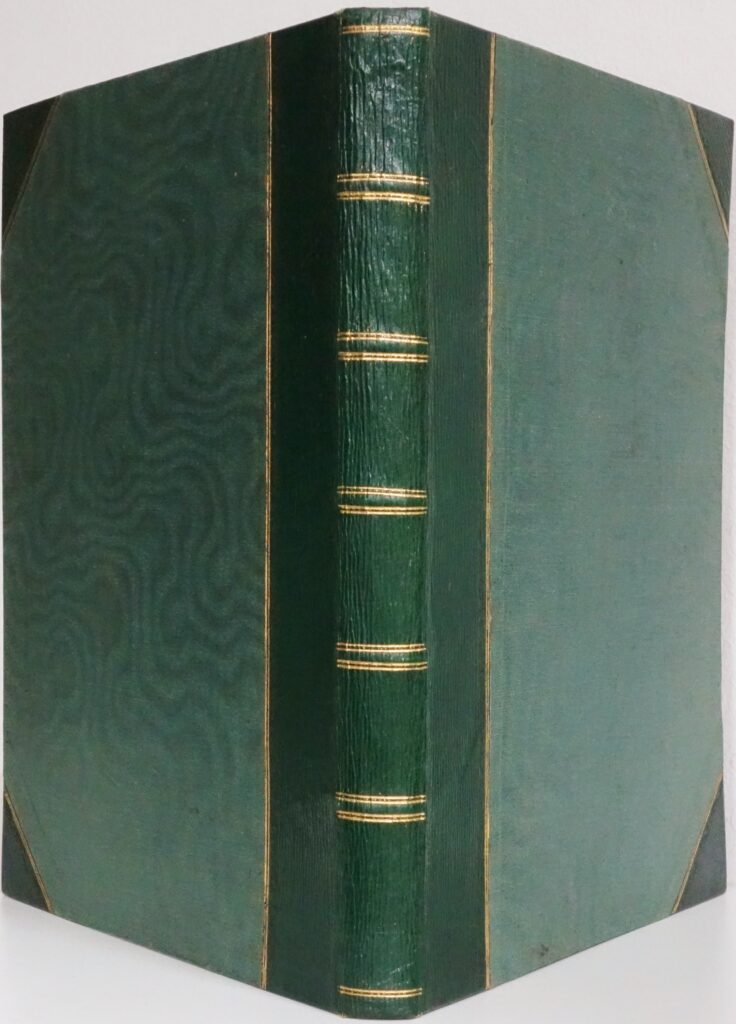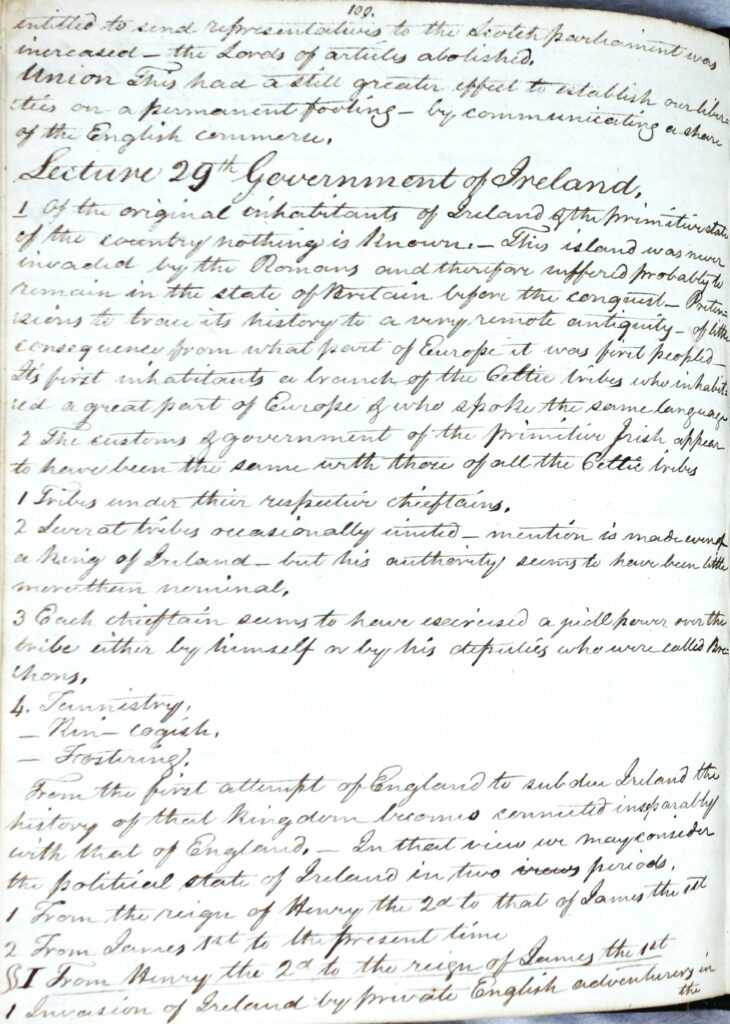

According to an inscription dated 1855 on the front pastedown, these ‘Notes [were] written by the late David Wemyss Esq. WS’. The printed curriculum is extremely rare: Gaskell reports editions printed in 1771, 1773, 1778, 1783 and 1787 (slightly different from year to year), but they are all known in one copy only. In ours, the individual lectures have been neatly cross-referenced to page numbers in the manuscript.
‘John Millar was outstandingly successful as a law teacher. He was known as a profound and ingenious scholar, and students came from all quarters of Britain to hear his lectures. Many of his students later distinguished themselves as philosophers (for example, David Hume, himself a Professor of Scots law) or politicians (for example, James Maitland, 8th Earl of Lauderdale). He lectured not only on civil law (Institutes and Digest) but on Scottish law, English law and government. Many lecture notes taken by his students can still be found in Glasgow University Library and other libraries. His influence also extended beyond his law classes. It is well known, for example, that Jeffrey, Horner, Brougham and other contributors to the Edinburgh Review as well as James Mill were greatly stimulated by and learned much from Millar. Millar based his law courses on a philosophy derived from Smith’s Theory of Moral Sentiments (1759). His respect for Smith was very great: “I am happy to acknowledge the obligations I feel myself under to this illustrious philosopher, by having, at an early period of life, had the benefit of hearing his lectures on the History of Civil Society, and of enjoying his unreserved conversation on the same subject … The great Montesquieu pointed out the road. He was the Lord Bacon in this branch of Philosophy. Dr. Smith is the Newton”‘ (Dictionary of Eighteenth-Century British Philosophers, Thoemmes Press, 1999).
‘Millar’s published works sprang from his teaching … An Historical View of the English Government … (1787) was intended as a modern whiggish correction to Hume’s History of England … As with his intellectual master, Adam Smith, however, the full scope of Millar’s project disappeared from view because so much of the theoretical structure remained the privileged information of his students’ (ODNB).
